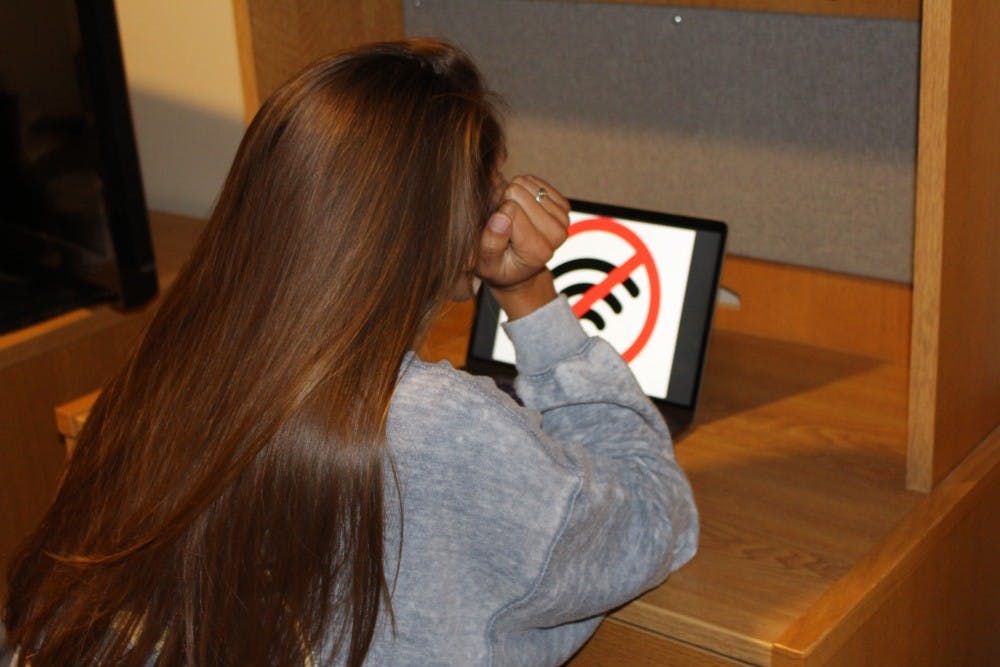A new semester always brings chaos to campus.
This year, drama arose when Steve Elwood, director of enterprise infrastructure, announced that the familiar T.U.C.A.N. was being replaced.
“T.U.C.A.N. has been great, it's given us what we need, but we're trying to move to a different way of doing our wireless networks,” Elwood said.
Instead, students are supposed to connect to “Taylor University” and guests to “Taylor Guest.” Students already connected to T.U.C.A.N. have several months to make the switch and new students rarely even knew there was any other option. We were sad to lose the fun name, but things seemed simple enough.
However, technical difficulties arose and some students found themselves unable to connect to either of the WiFi networks. Without an official explanation for the cause of the problems, rumors spread.
Some claimed that Taylor had cut the bandwidth down to a smaller size, meaning the same number of students now had less WiFi to share. Others feared that the switch had brought some strange glitch that made connecting impossible.
When The Echo first heard about these rumors, we were also upset. WiFi is a precious commodity for college students, and lessened access could have real consequences on our grades, and more importantly, our Netflix.
But after the initial shock wore off, we became more concerned with the facts behind the rumor.
After some digging, it was revealed there were no changes to the bandwidth and no conspiracy to deny us our Netflix. The connection issues arose from the mundane confusion of switching over to a new system. A setting called “Broadband” was left on, meaning most devices were unable to connect to the internet.
“There was no intent to make that worse,” Elwood said. “I often say we're doing our best work when nobody knows we exist because everything's just working. So as soon as we found out, we got that particular type of traffic disabled, and that got rid of most of the problems we were having.”
The quick fix to such a major problem was a relief, but the question remained: why did it take them so long to figure it out? Part of IT’s blindspot was the unfortunate fact that these kinds of problems don’t become obvious until thousands of students show up and flood the system.
The continuing problems after that, however, are on us students.
“I had one student who put in a ticket to tell me about it, and no one else had let IT know,” said Elisa Dinsmore, infrastructure network analyst. “So he kept saying, 'Well I'm having this problem everywhere, everyone I'm talking to is having this problem,' but no one else was telling me about it. It's really hard to troubleshoot the problem when I only have one source for what's going on.”
The new independence of life in college makes us feel like we need to solve all our own problems, but it’s important to remember that there are still other people to help us out. The bureaucratic machine that provides us with food, housing and WiFi might seem uncaring at times, but the people that run it don’t want us to needlessly suffer.
Submitting a ticket or talking to the tech help desk might feel pointless at times, but these things really do help in the big picture. Complaining to others can be therapeutic, but it is important to also communicate with officials to fix the problem.
Even though it took longer than preferred, we at the Echo are glad the problem has been officially solved. Now if you’ll excuse us, we’ve got some “Friends” to binge.



